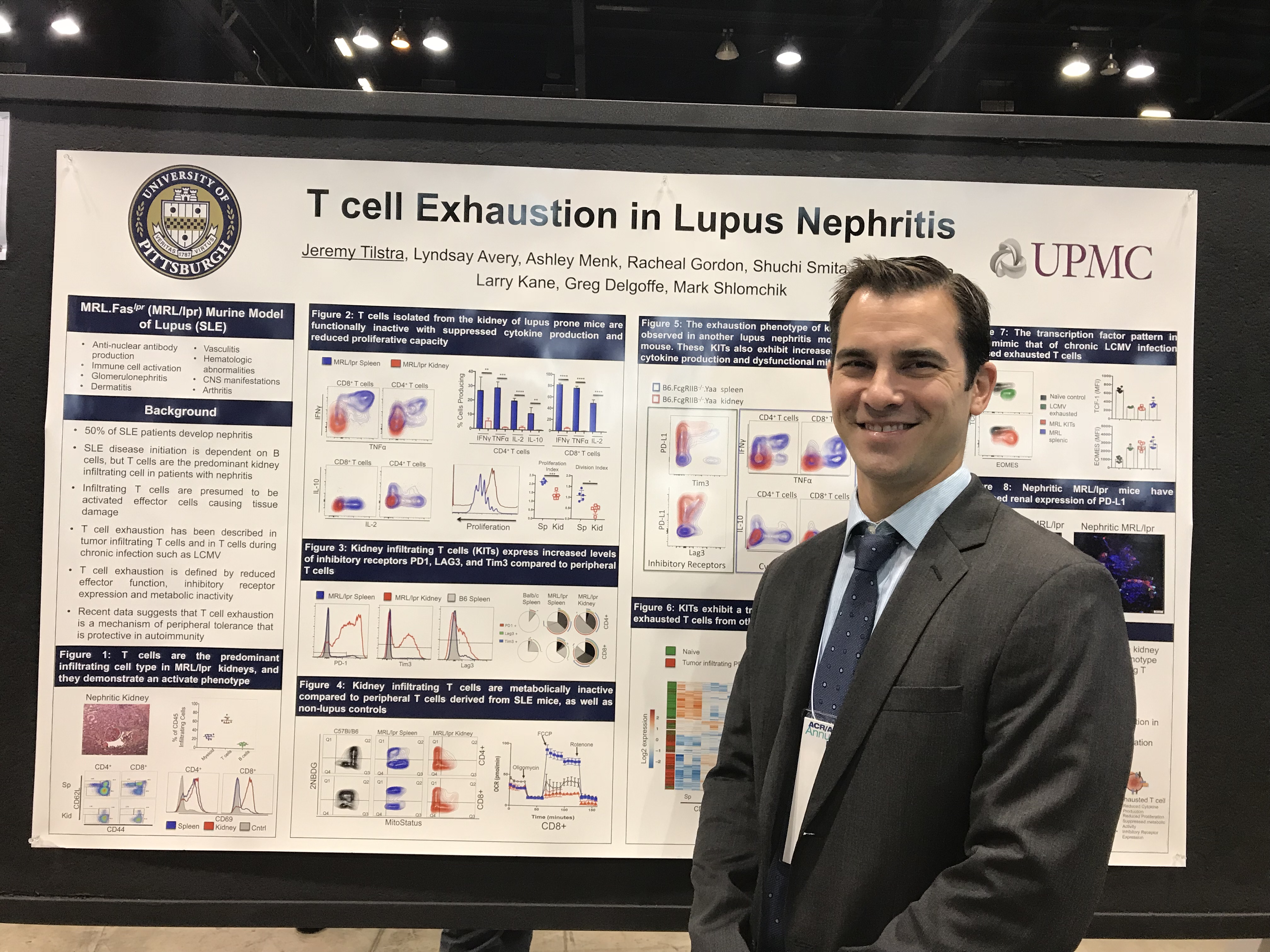The Lupus Research Alliance supports the full range of research from fundamental through translational and clinical studies. Most recently, the organization awarded six Novel Research Grants and seven Target Identification in Lupus (TIL) grants. PROMISING NOVEL GRANT AWARDS: The Lupus Research Alliance supports game-changing lupus research, and our Novel Research Grant program is exploring lupus […] READ MORE
Research/Discovery

October 29, 2018 More than 70 researchers who have received funding from the Lupus Research Alliance contributed to the scientific dialogue on lupus at the ACR|ARHP meeting this year. Following are highlights of specific discoveries the organization has supported: Tiring Out Rogue Cells Learning from cancer research, a team of scientists led by the inaugural […] READ MORE
October 4, 2018 Abnormal immune cells invade the kidneys in patients with lupus and can damage the organs so severely that they stop working. But the kidneys defend themselves from these attacks by disabling these rogue cells, according to a new study from two scientists funded by the Lupus Research Alliance. Cancerous tumors similarly protect […] READ MORE
October 4, 2018 Immune cells called macrophages that normally clear away the body’s trash don’t do their jobs in lupus. Now, a study of cancer partly funded by the Lupus Research Alliance may explain how these macrophages promote lupus. Douglas Green, PhD, of St. Jude Children’s Research Hospital in Memphis, Tennessee, and colleagues found that […] READ MORE
Sept. 5, 2018 Our microbiome includes all of the trillions of microorganisms that live in and on us. A recent review article about key discoveries on the role of the microbiome in lupus includes two researchers funded by the Lupus Research Alliance who may have discovered how some of these microbial passengers promote lupus by […] READ MORE
August 28, 2018 NEW YORK, NY. Aker BioMarine and Lupus Research Alliance launch a new clinical study, investigating how phospholipid-rich krill oil can benefit people with lupus, with the aim to lessen the severity of symptoms associated with the disease. Affecting an estimated 5 million people worldwide, Systemic Lupus Erythematosus (SLE), better known as lupus, […] READ MORE
July 26, 2018 By uncovering how some killer viruses beat our immune system, scientists partly funded by the Lupus Research Alliance have identified a potential new way to treat lupus. The viruses that cause Lassa fever and other similar diseases kill thousands of people every year. One reason these viruses are deadly is that they […] READ MORE
July 3, 2018 Neovacs announced the results of its Phase IIb clinical trial of the investigational agent IFNalpha Kinoid in patients with moderate to severe lupus (SLE). The results show that IFNalpha Kinoid very significantly reduced the levels of type I interferon genes in the blood and tissue cells of people with lupus. High levels […] READ MORE
June 5, 2018 The Lupus Research Alliance is driven by one central goal — to improve the lives of people living with the disease, today and in the long term. We believe that scientific research is the most powerful way we can achieve this goal. Further, we believe that by both pushing the limits of scientific exploration and […] READ MORE
April 24, 2018 Scientists funded by the Lupus Research Alliance may have discovered why patients with lupus are at risk for heart disease. Most recently, at the National Institute of Arthritis and Musculoskeletal and Skin Diseases, Dr. Mariana Kaplan and colleagues found that abnormal immune system cells are damaging patients’ arteries. Published in the journal […] READ MORE
April 20, 2018 The Lupus Research Alliance Lupus Industry Council (LIC) met a key objective with the recent publication in the medical journal Arthritis & Rheumatology reporting on a new tool to better measure the effectiveness of potential drug treatments in clinical trials. The LIC aims to bring industry and academia together to work collaboratively, […] READ MORE
April 18, 2018 A new study by Lupus Research Alliance-funded researcher Dr. Matthew Weirauch of the Cincinnati Children’s Hospital Medical Center in Ohio and colleagues might explain how a common virus that causes mononucleosis also boosts the risk for lupus. The virus may be turning on human genes that promote the illness. The scientists, including […] READ MORE














